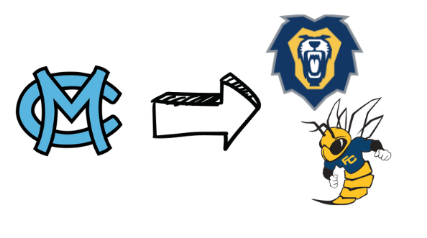“Slang” is a classification of words that are used informally and more often in speech than text. Slang (the definition that we use now) is not necessarily new; however, the words that are considered modern slang continue to change with time.
Slang develops through conversation. Words or phrases that easily convey emotions, ideas, or values evolve into slang through the repetition of others. Eventually, the word/phrase is passed on enough where it becomes well known enough to be considered slang. Nowadays, slang is heavily distributed through social media, which makes it easier for the emergence of slang for specific social groups or circumstances.
For example, the term “looksmaxxing” derives from a specific circumstance. Adhering to particular rules to make one appear more attractive can be considered looksmaxxing. Similarly, terms like “mogging” or “mewing” formed to describe actions that previously did not have names.
Pseudowords are also a common occurrence with social-media based slang. Words like “skibidi,” which can be used as an adjective anywhere but has no set definition. Pseudowords are also prevalent in Dr. Seuss books, where seemingly random gibberish is used to describe seemingly random nouns.
“You’re so skibidi,” Dahlila, a senior at MOHI, compliments. In this instance, skibidi is used with a positive connotation.
The word “skibidi” also follows the phonotactic constraints of the English language. (Phonotactic constraints restrict the language from forming words that are random clusters of letters. For example, after R or L, the next letter must be a vowel. Or, the combinations PL and SL are acceptable, but TL or NL is not).
Slang can derive from commonly understood metaphors. Baseball-based slang is a prime example of this—phrases like “strike out” or “out of left field,” which come from the sport, use plays to portray actions. More recently, prime “universally understood” references derive from gaming. Terms like “NPC” and “W/L” compare real life to games because of their ubiquity.
Other general ubiquitous terms derive from food. We need food to survive; food is a good thing. Phrases like “he cooked” or “she ate” emphasize this unconscious favoritism towards the privilege to acquire food. These expressions also exemplify our positive connotation with the active voice rather than the passive (he cooked v. he is cooked). This relates to action bias, in which we psychologically prefer to take action over inaction.
Overall, modern slang, despite its seemingly ambiguous emergence, follows many linguistic and etymological rules to properly convey feelings, thoughts, or morals.






















